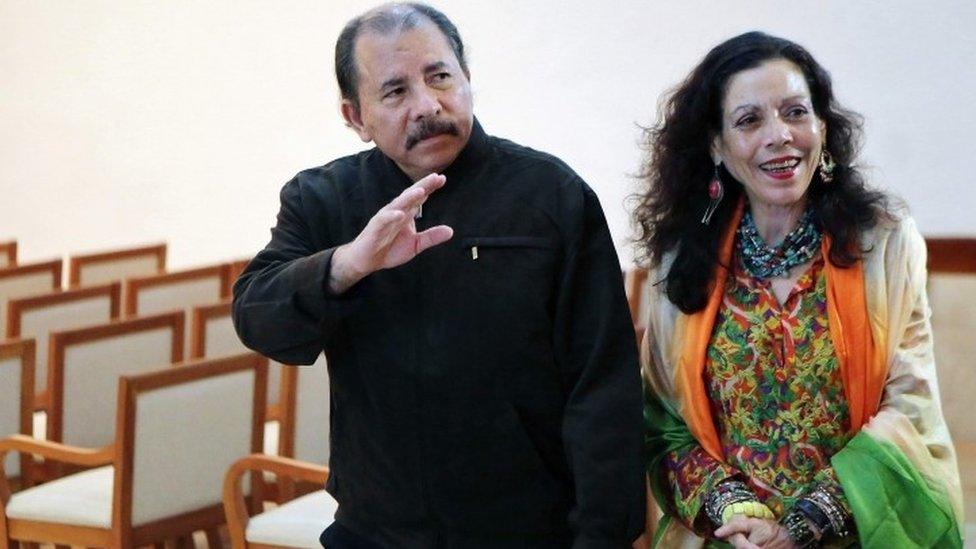Nicaragua protests: Tens of thousands in new anti-government rallies
- Published
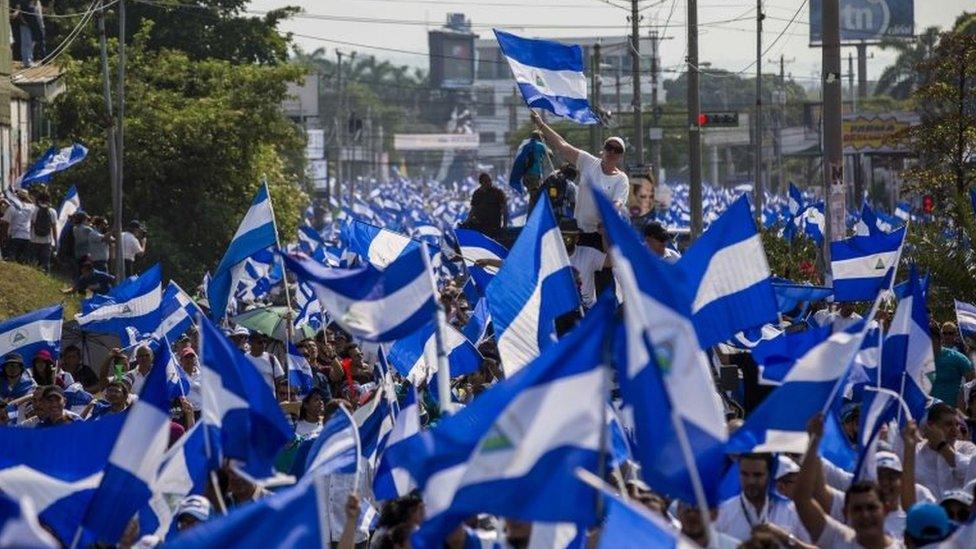
Protesters waved the Nicaraguan flag and shouted anti-government slogans
Tens of thousands of Nicaraguans have taken part in fresh anti-government protests in the capital, Managua, and in Matagalpa y Chinandega.
Wearing the blue and white of the flag, Wednesday's protesters held pictures of people reportedly killed in last month's demonstrations.
Government supporters held a smaller rally in another part of the capital.
Last month's unrest began after President Daniel Ortega approved cuts to pensions and social security.
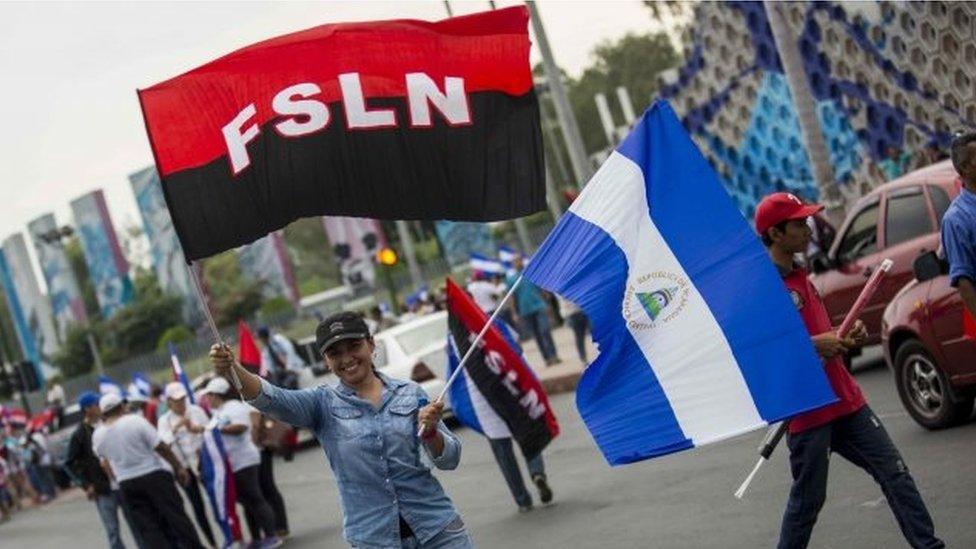
Supporters of the governing FSLN party held a rival march
Four police officers, two of them women, were shot at on Wednesday following the anti-government protest in Managua but officials said the attack was not related to the march.
"A group of vandals... fired their guns at a police patrol which was directing traffic," deputy police director Francisco Díaz said.
Spreading discontent
At last month's protests, pensioners were soon joined by students and other Nicaraguans who have become the biggest challenge to Mr Ortega's authority since he took office in 2007.
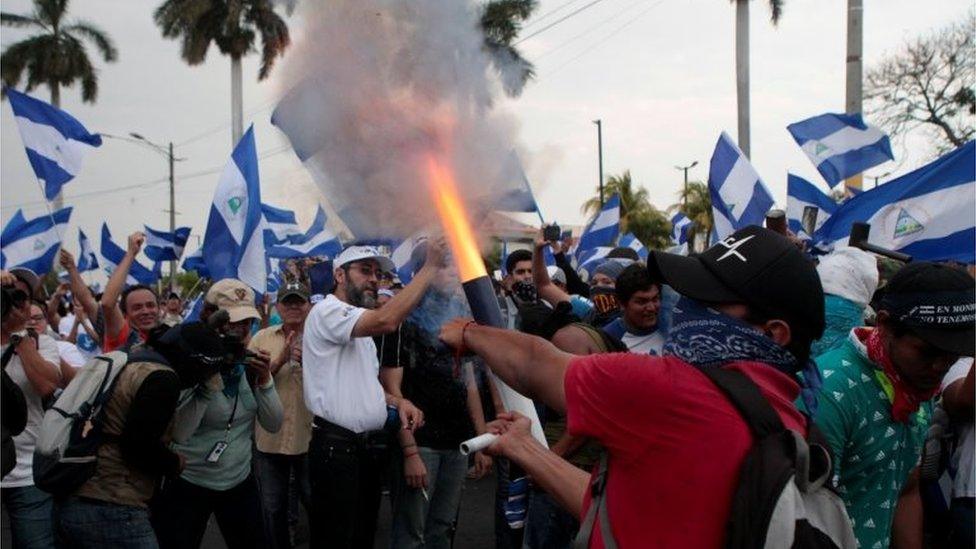
Some of the protesters fired homemade mortars
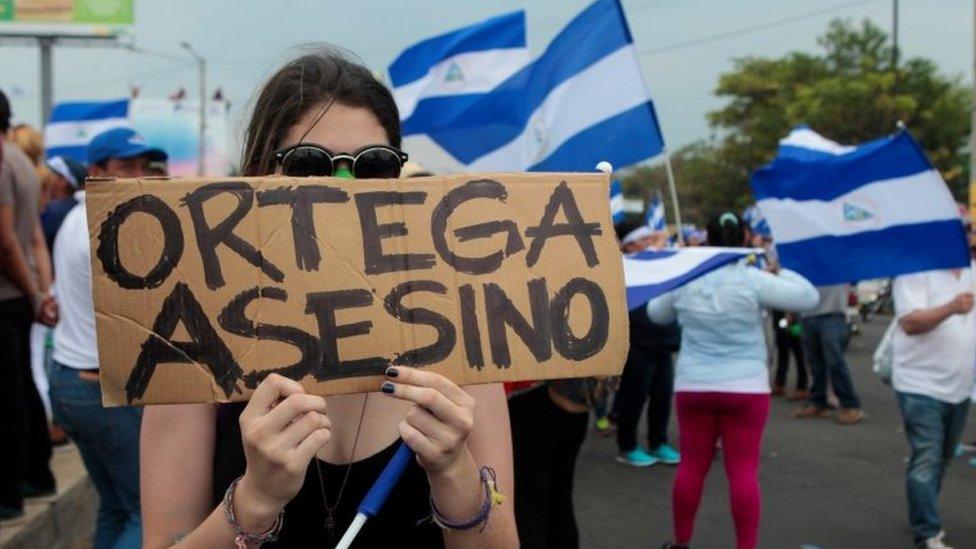
Demonstrators held up signs calling the president a "killer"
President Ortega revoked his plans to overhaul the social security system but the move failed to quell the protests, in which more than 40 people have been killed according to human rights groups.
He also called for a "national dialogue" but meetings between his government and protesters which were meant to be mediated by the Catholic Church have yet to take place.
Demonstrators on Wednesday were demanding "freedom of expression and information and an end to violence" as well as calling for President Ortega to step down.
There has been discontent with the president, who is serving his third consecutive term in office, for years in some parts of society.
The 2014 scrapping of presidential term limits has been seen as a threat to democracy and some of those who have been demonstrating have accused Mr Ortega and his wife of having "dictatorial tendencies".
- Published7 May 2018
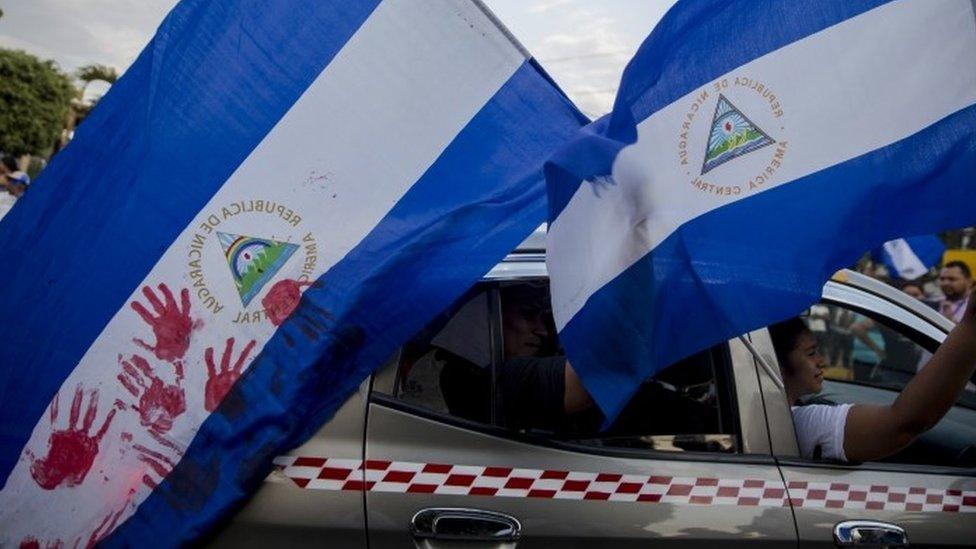
- Published23 April 2018
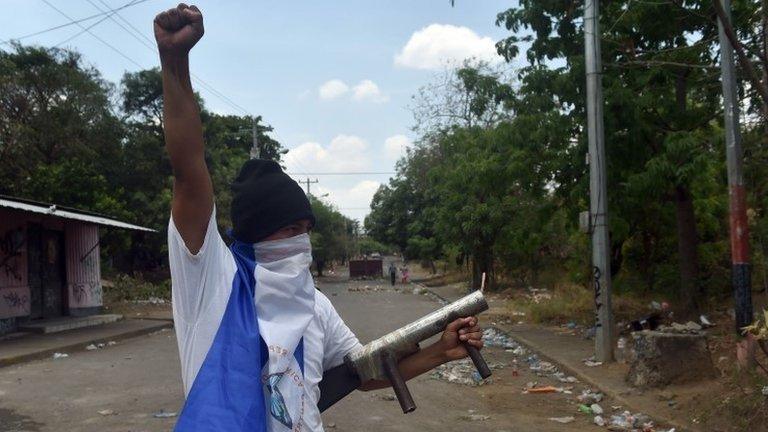
- Published22 April 2018
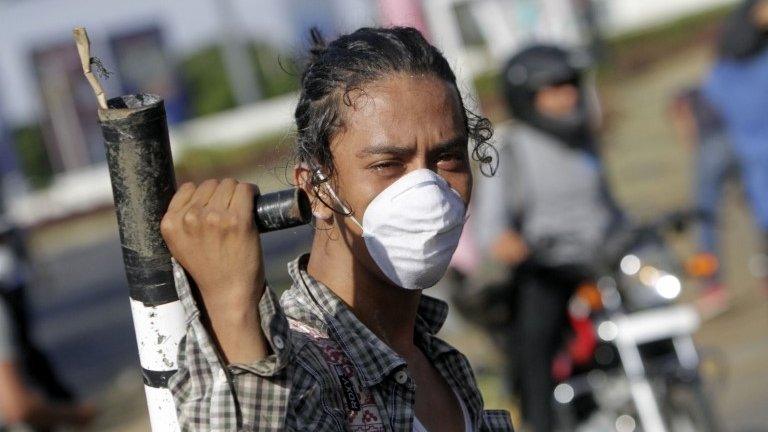
- Published22 April 2018
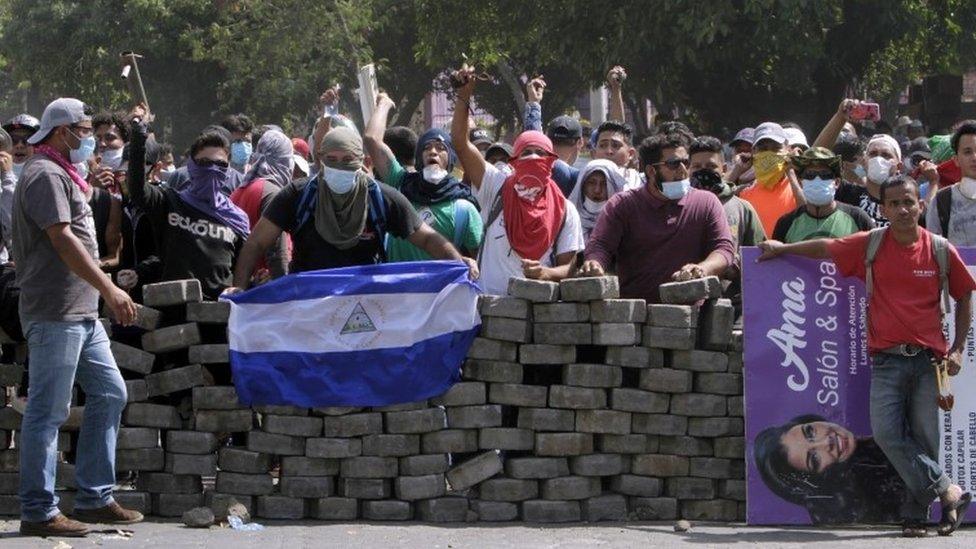
- Published7 November 2016
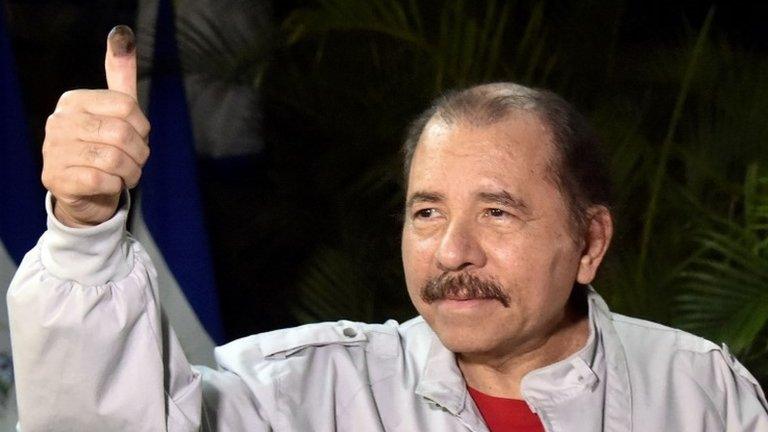
- Published3 August 2016
